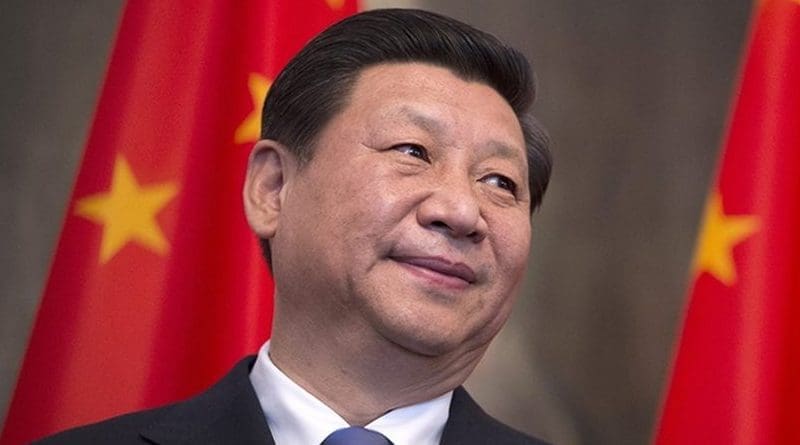Xi And China’s Fourth May Revolution: Can State Control And People’s Empowerment Be Reconciled? – Analysis
By IPCS
By Vice Admiral (Retd) Vijay Shankar*
Since 1919, the Fourth of May movement has been evoked by Chinese scholars and the Chinese Communist Party (CCP) as a beacon for independence and enlightenment. How the array of critical thoughts that the movement represented will translate into policies that debunk authoritarianism remains unresolved.
World War I ran its grisly course and all the while theorists argued whether dynamics for cessation could be found in the very causes that triggered it. Were the answers in the crisis that erupted on the assassination of the Archduke Ferdinand? Was it in the nature of the alliance system? Or, conditions of aggressive militarism that drove countries to the brink? Or could it have been in the structure of imperial polity?
While none of these considerations contained a tenable rationale for reconciliation, what did bring about cessation was strategic exhaustion coupled with the collapse of motivation.The US’ weighing-in on the side of the Allies decided the victor. Devastation caused by the war fashioned a perception that it was a ‘self-inflicted’ mortal wound to the ‘eminence’ of imperial boom. And so the peace settlement of Versailles in 1919 was an instrument to make good territorial, colonial, economic gains and indeed salvage some pride for the victors through the imposition of punitive, geographic, military, and financial terms on the vanquished. What the Treaty fatally failed to perceive was the emergence of a cluster of unsettled precarious nation states in West Asia and East Europe; and a disdain for the dormant appetite for expansion in Russia, the down-but-not-out Germany, and China.
The Treaty of Versailles, among its many contentious terms, awarded Japan control over German colonies and territories in the Pacific and , to China’s anguish, German concessions in Shandong. This led to a major uprising that over the next decade saw the coming of warlords, fragmenting of the Qing Empire, and colonial avarice; all against the backdrop of a nationalist revolution. China, it will be recalled, had sided with the Allies, and many Chinese expected Shandong back. Instead, the Allies awarded it to Japan. That decision ignited fury among Chinese students, who saw it as a betrayal by Western countries and by Chinese leadership. Anger spread in universities and colleges across Beijing, and on 4 May 1919, students from 13 campuses in the capital came together in protest. The upsurge spread to other cities in China, inspiring strikes and boycotts. This forced the government in Beijing to refuse to ratify the Peace Treaty.
This day entered history as a watershed for Chinese philosophical thought. Chinese intellectuals linked the protests with the ‘New Culture Movement’, the name they gave to a flux of ideas that had spread in universities, newspapers, and literary circles. Ideas included anarchism, socialism, feminism, artistic experimentation, and reforming written Chinese. Summed up as the tempestuous advent of “Mr Science and Mr Democracy; science “stood for ‘modernity’, the ‘West’ and a general distaste and iconoclastic approach to Chinese tradition.”
Shandong has been China’s political, economic, and cultural centre since ancient times. The founder of Confucianism lived here. Chinese culture, beliefs, and folklore were rooted in Confucius’ teachings and philosophy. He broke from convention in which culture and education were controlled by aristocrats. He publicly put forth a slogan “just education, no discrimination.” The students’ protests of 1919 sought to reinstate and expand on these very traditions.
Now, the CCP has cast itself as the rightful heir to the legacy of the ‘New Cultural Movement’ as its strongest suite for legitimacy. However, what is of substance is that the challenge of empowering the people is unfulfilled. In this circumstance, the Fourth of May can neither be buried nor ignored. So, notwithstanding how unpalatable the disclosure and debilitating the impact of restructuring, it is an innate process that looms over China’s future.
Having graduated from Deng’s grand strategy of “Hide the light, bide the time,” Xi’s vision of ushering a ‘new era’ is founded on two critical milestones spread over three decades starting with 2020, by which time China should become an all-round prosperous society, and then by 2035, complete a basic socialist modernisation project. The next 15 years is to be devoted to attaining the status as a “leading world power,” and a wealthy socialist state; restoring to China its “lost glory.” Whether Xi has accounted for the needs of democracy on the path to socialist modernisation in the first 15 years or whether it is even tenable is the moot point. After all, the whole scheme appears to be a hail back to Soekarno’s failed “Guided Democracy” — conceptually, a democratic government that functions as an autocracy. While legitimised by controlled elections, the people are not empowered to bring about changes in national policies, motives, and goals. Undeterred by this foundational contradiction, Xi commemorated the Fourth of May by exhorting Chinese youth to “obey and follow the party.” A strange way for the renewal of ‘Mr Democracy’!
The most important change that a century has wrought is the shift in global power structures. The collapse of the British empire in the wake of World War II ushered in ‘Pax’ Americana (ironically a period marred by over 50 years of warfare). The prediction of the Asian Century is now coming true, with the emergence of China, Japan, India, South Korea, Taiwan, and Singapore as global economic pivots. China’s economic growth has been incredible; a phenomenon that is only 40 years old. Yet, the century-old conundrum that Xi faces remains unchanged: having taken ownership of the Fourth of May, how indeed is science-technology-wealth to be divorced from the increasing urge for democracy? Will the despot’s ‘socialist modernisation project’ ever reconcile this imbalance between the CCP’s iron hold and empowerment of the people?
*Vice Admiral (Retd) Vijay Shankar is former Commander-in-Chief of the Strategic Forces Command of India, and Distinguished Fellow and columnist at IPCS.

